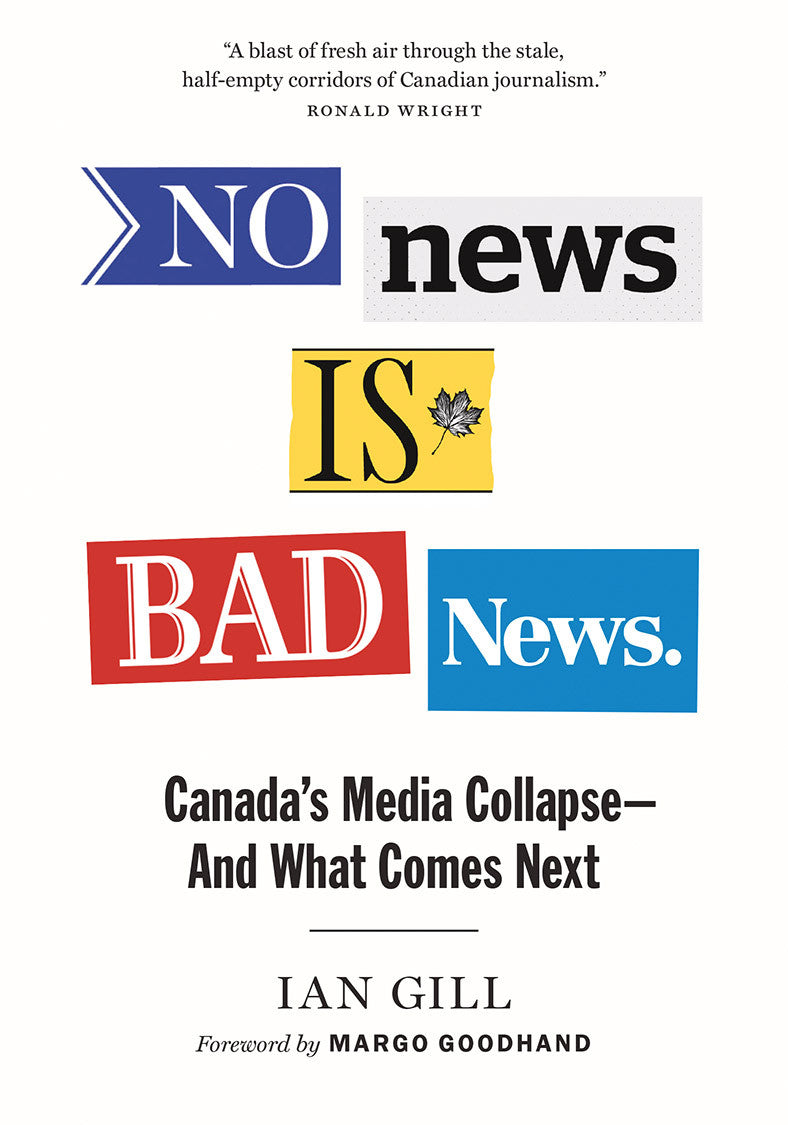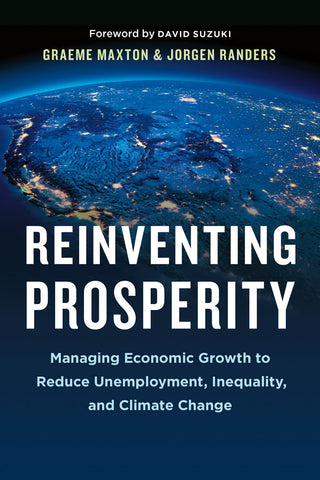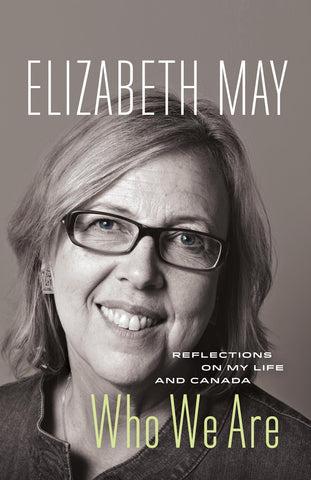No News is Bad News
Canada’s Media Collapse—and What Comes Next
- ISBN: 9781771642682
- Tags: Current Affairs & Politics, Ian Gill, Margo Goodhand,
- Dimensions: 5.25 x 7.5
- Published On: 8/26/2016
- 200 Pages
- ISBN: 9781771642699
- Tags: Current Affairs & Politics, Ian Gill, Margo Goodhand,
- Published On: 07/01/2016
- 200 Pages
“A blast of fresh air through the stale, half-empty corridors of Canadian journalism.”–Ronald Wright
An urgent, necessary look at why Canada’s media is dying—and how we can save it.
Canada’s media companies are melting faster than the polar ice caps, and in No News Is Bad News, Ian Gill chronicles their decline in a biting, in-depth analysis. He travels to an international journalism festival in Italy, visits the Guardian in London, and speaks to editors, reporters, entrepreneurs, investors, non-profit leaders, and news consumers from around the world to find out what’s gone wrong. Along the way he discovers that corporate concentration and clumsy adaptations to the digital age have left Canadians with a gaping hole in our public square. And yet, from the smoking ruins of Canada’s news industry, Gill sees glimmers of hope, and brings them to life with sharp prose and trenchant insights.
Published in Partnership with the David Suzuki Institute.
Ian Gill is the author of three earlier books, most recently All That We Say is Ours: Guujaaw and the Reawakening of the Haida Nation. He is a former editor and reporter at the Vancouver Sun, and was an award-winning documentary reporter with CBC TV until 1994, when he founded Ecotrust Canada. Today, he is principal of Cause+Effect, his consulting company.
Margo Goodhand is the vice-chair of the National Newspaper Board of Governors. She was the editor-in-chief of the Edmonton Journal 2013-2016 and the Winnipeg Free Press from 2007-2012.
From the Introduction
The blame lies less with the rapid disruptions wrought by new technology and instead with complacent owners, tremulous investors, and inattentive regulators, whose failure to recognize what is happening to media business models has been exacerbated by soft-minded journalists, who have largely missed the story of their own demise. It’s as if Canada’s journalists were assigned to cover a state funeral, and only now are wising up to the fact that the body in the casket is their own.
Journalists aren’t easy to love. They are less trusted than police, schools, banks, and the justice system, and only marginally more trusted than federal Parliament and corporations. But what journalists do is important, and it isn’t just the business of rooting out liars, holding policy-makers accountable, probing the public accounts, championing the underdogs, or hounding the overlords. It is all of those things, but it is more importantly the practice of using stories as a way to help people make sense of their world.
It is not enough to write the first draft of history. The job of journalism is also to recall and reflect on our shared history, to capture or at least help channel the currents of our times, and to help us imagine what sort of society we wish to invent for ourselves and for those who come after us. Yes, debates happen in this country’s legislatures, our rules of conduct are enforced in our courts, and our commerce is carried out, sometimes in public, often in private, and most of the system works for most of the people most of the time. But not always, and not for everybody—which is why our public square needs to include spaces where we can challenge the status quo, encourage dissent, listen at the margins, and champion new ideas, new ways of doing things, new ways of seeing the world, new ways of understanding our place in it. We need new places to share those stories in multiple and evolving ways.
To do all that, good journalism needs a home, many homes actually, but in Canada we’ve failed to keep our media house in order, and our public square is shrinking fast. Canadian journalism is on life-support—not because Canadian reporters don’t know how to do journalism, but because there are so few places to put it anymore. We’ve clung for so long to dinosaur media-business models that while pretty much everyone else in the developed world is driving the journalistic version of a Tesla these days, here we are all crammed into a second-hand Edsel, wondering if we can afford snow tires. How did things get so bad? Will they get worse? Should we even care anymore? And if so, what should we do about it?





